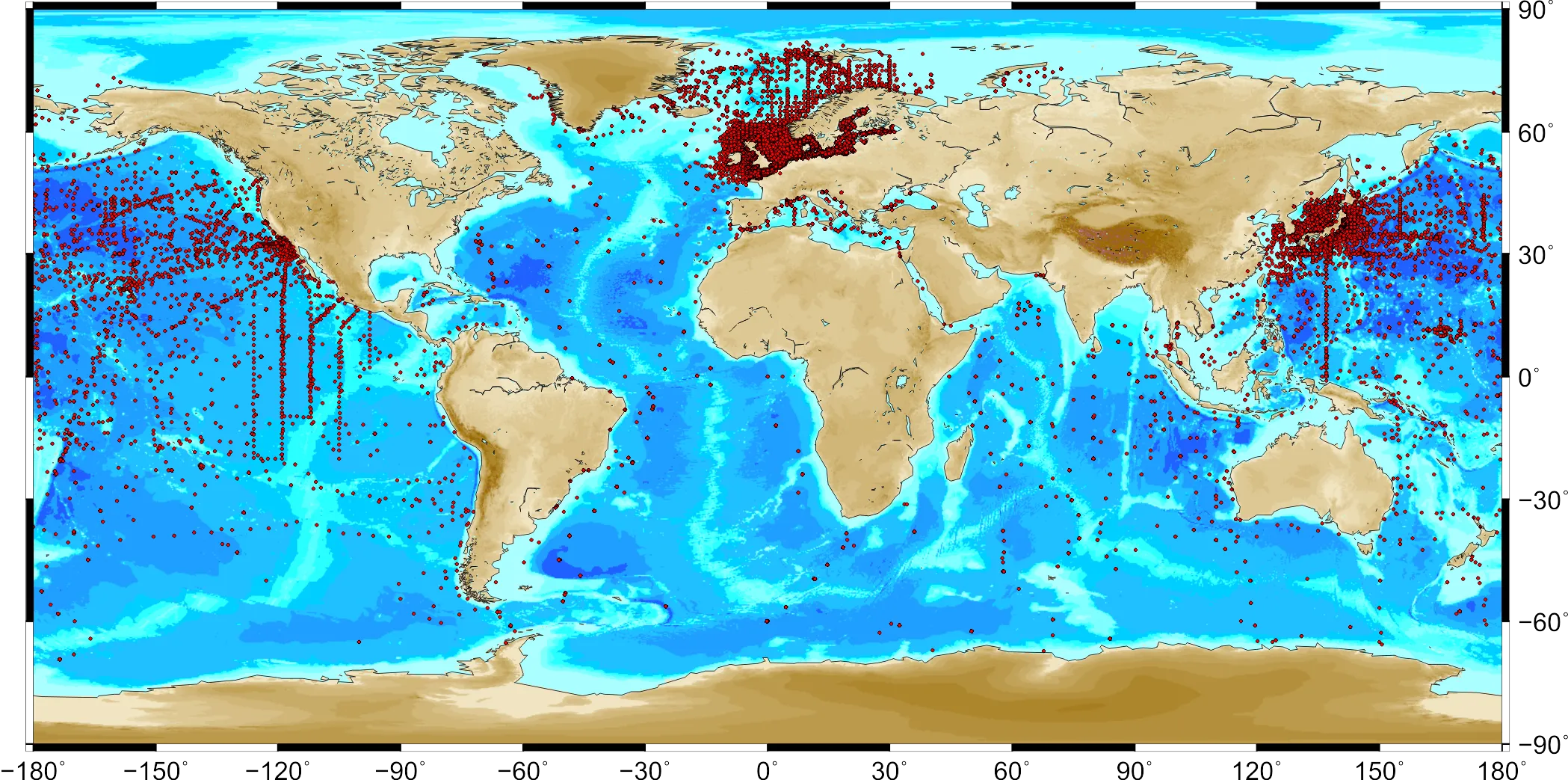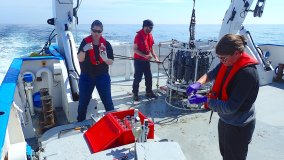The IAEA's Marine Radioactivity Information System (MARIS) allows free access to users to search and download the results of measurements of radioactivity in seawater, biota, sediment and suspended matter
MARIS is maintained and developed by the Radiometrics Laboratory at the IAEA Environment Laboratories in Monaco.
Radionuclides occur naturally or are artificially produced in industrial facilities. All seawater, sediment and organismsin the world’s oceans and seas are naturally radioactive. In addition, the marine environment contains a comparatively small amount of radioactivity resulting from human-caused activities. The major sources of man-made radionuclides in the environment include fallout from nuclear weapons testing, and both routine and accidental releases from nuclear facilities. These radionuclides end up in the marine environment through direct discharges, atmospheric deposition, or run-off from land. Naturally occurring radionuclides originate from the Earth’s interacting physical, chemical and biological processes with the majority accumulating in the rocks and sediments that make up the Earth’s crust and ocean basins. Access to data on marine radioactivity is essential for understanding all these natural marine processes and theimpact of human activities on the seas and oceans.
The database currently contains more than half a million marine radioactivity measurements, representing more than 100 different radionuclides or radionuclide ratios in seawater, biota, sediments, and suspended matter. These data originate from published scientific papers, reports and databases created within institutes or scientific programmes in Member States. On MARIS, users can refine the available data using various criteria, for example geographical region, type of sample, radionuclide, sampling date or depth.
As a hub for the collection of marine radioactivity information, the data in MARIS can be used by Member States to assess distributions and trends of radionuclides, to validate computational models used for simulation of the transfer of radionuclides in the marine environment. The database also serves as an input into radiological assessments and helps to investigate marine processes (e.g. water-mass transport, carbon cycling, sedimentation rates), some of which influence pollution and climate.
In addition to scientists and policy-makers, MARIS can be used by interested members of the public to access reliable and understandable information about radioactivity in the marine environment.




